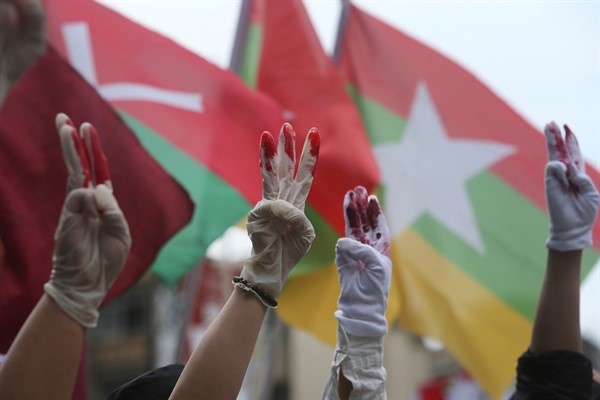Back in February, several weeks after Myanmar’s military ousted the elected government led by Aung San Suu Kyi, I spoke on the phone with a 25-year-old researcher in Yangon, the country’s largest city. Having joined popular demonstrations against the coup, he said he was surprised at the scale of resistance to the new junta. The movement, which quickly became known as the Civil Disobedience Movement, had galvanized hundreds of thousands of nonviolent protesters across the country, as massive strikes at public agencies, banks and businesses threatened to grind government functioning and the economy to a halt.
The researcher, who asked for anonymity to protect his safety, told me that he and his fellow activists were willing to put everything on the line to oppose the military, known in Myanmar as the Tatmadaw: their jobs, their homes, their relationships—even their lives. “We all know that there is a very, very little chance—maybe 0.1 or 0.05 percent—to win this fight. But still, this is a once-in-a-lifetime chance, so we’d all like to try,” he told me.
He also issued a warning: “Never underestimate the brutality of the military.”

